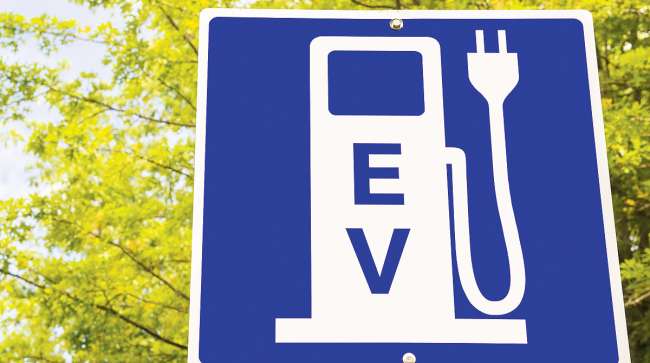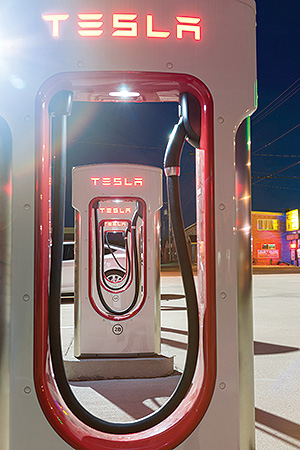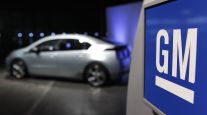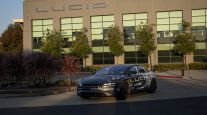New North Carolina Law Means Electric Vehicles Can Pay for Power

[Stay on top of transportation news: Get TTNews in your inbox.]
A new North Carolina law will change the way electric car owners pay for the electricity they use to charge their cars when they are out and about.
The law allows the operators of publicly available electric car charging stations to make drivers pay for how much electricity they get when they charge their car batteries.
The law was written by Republican state Rep. John Szoka, passed nearly unanimously by the Legislature this year and signed by Democratic Gov. Roy Cooper in July.

Tesla chargers by iStock.
Without the new law, an old law designed to protect the power companies (and their investment in building generators and the electrical grid) made it illegal for anyone to resell electricity except at boat marinas and recreational vehicle parks, Szoka said. As a result, electric car charging stations in the state have not been charging drivers for how much electricity they receive.
Instead, the charging stations often have provided electricity for free or charging station access has been included with standard parking fees.
Szoka said some charging stations have charged drivers a flat fee or for the amount of time they used the stations.
Electric vehicle owners typically charge their cars at home and pay their electricity provider for the power there. Away from home, they can get extra electricity at a public station and may have grown accustomed to getting it for free.
Ron and Angela Smoko stopped at a Tesla Supercharger station off Interstate 95 in Fayetteville on Aug. 13 on their way back home to Connecticut in their Tesla electric car. Tesla allows them to charge their car for free at all Tesla stations, they said, but it wouldn’t trouble them to pay if they find themselves at another company’s charger with no Tesla station nearby.
“I mean, it’s a commodity,” Ron Smoko said. “If they have control of it and they did the capital improvements to wherever they are to facilitate that delivery system, then they’re entitled to be paid for it.”
Another driver said on Facebook that she is saddened by the new law.
“The stations were set up and free to encourage the use of cleaner fuel,” Brittany Willis wrote. “I’m okay with paying, but most charge more than it would be worth to charge. Our car only cost about a dollar for a full charge at our house, but with what charging stations usually charge we will be paying double. The sad part is it will just make us use gas mode more.”
No one asked Szoka to draft his law. “It’s one of these things that I saw needed to be done,” he said. Electric cars are a rapidly growing segment of the vehicles on the road, he said, and there will need to be more options for drivers to charge their cars when they are away from home.
Szoka expects the law will lead to the installation of more charging stations at stores, shopping centers, restaurants, apartment complexes and other venues. The owners can set their pricing and compete for customers, he said.
“Now you’ve got something where the free market is working the way it’s supposed to work,” he said.
Approximately 30 other states allow charging stations to bill drivers for the amount of electricity they used, said Dave Schatz, the director for public policy for ChargePoint. The company makes and sells electric car charging stations for homes and businesses, and has a publicly available nationwide network of 90,000 stations, he said.
ChargePoint endorsed Szoka’s charge-station law, Schatz said, because it will give clarity, certainty and flexibility to businesses considering whether to install charging stations.
“I think that it certainly encourages the market conditions for growth,” he said.
Szoka’s law has some limitations.
It applies only to charging stations for electric vehicles and plug-in hybrid-electric vehicles that have four wheels and that primarily are designed for use on public streets, roads and highways.
The vehicles must have a gross unloaded weight of 8,500 pounds and must be able to travel at least 65 mph.
The vehicle’s power source and powertrain must not have been modified from the original manufacturers specifications.
This means the power station owners would be prohibited from selling power to people with electric motorcycles, to semi-trucks or for vehicles converted from gasoline to electric power.
Distributed by Tribune Content Agency, LLC




